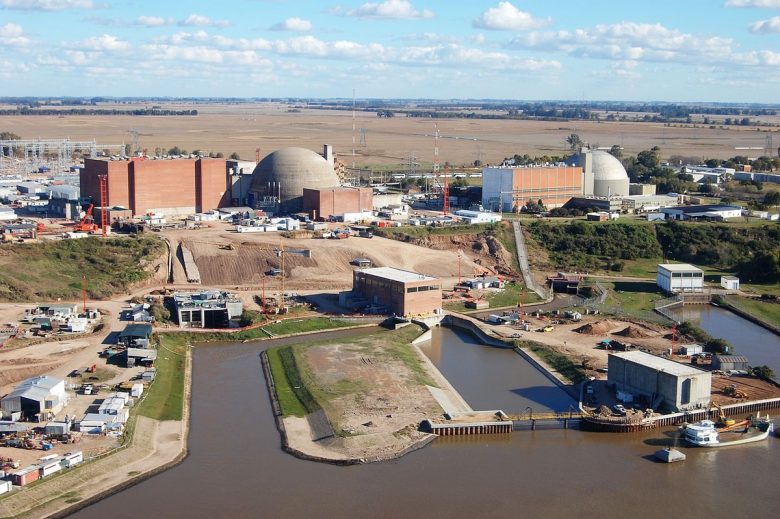 Funding offers of $93m have been received to support extended operation of unit 1 of Argentina’s Atucha NPP by 20-25 years. The funds will also help to finance construction of a second dry storage facility for used fuel at plant site. Argentina’s nuclear utility Nucleoelectrica Argentina SA (NA-SA) said the second tranche of the NASA IV Public Infrastructure Solidarity Financial Trust had been successfully tendered, aimed at obtaining funds to finance the two energy infrastructure projects. “The operation received offers for $93m, 16% more than expectations for this tranche”. The first tranche of this trust drew offers of more than $30m.
Funding offers of $93m have been received to support extended operation of unit 1 of Argentina’s Atucha NPP by 20-25 years. The funds will also help to finance construction of a second dry storage facility for used fuel at plant site. Argentina’s nuclear utility Nucleoelectrica Argentina SA (NA-SA) said the second tranche of the NASA IV Public Infrastructure Solidarity Financial Trust had been successfully tendered, aimed at obtaining funds to finance the two energy infrastructure projects. “The operation received offers for $93m, 16% more than expectations for this tranche”. The first tranche of this trust drew offers of more than $30m.
The tender was open only to qualified investors. On this occasion, the trust was backed by a remuneration contract that NA-SA maintains with CAMMESA for the sale of generated energy. The tender had a minimum investment limit of $100.
Establishment of the trust was approved last year by the National Securities Commission (CNV). Sebastián Negri, CNV President said at the time that the trust would support “great infrastructure work such as the extension of the useful life of the first nuclear power plant in Latin America, put into operation in 1974, mostly based on local technology”. He added that it “implies financing for five years of $600m, which will generate 2,000 jobs, at the request of a State policy that places Argentina among the few countries in the world with this technology”.
NA-SA said the tender had Nación Bursátil SA as the main underwriter. In addition, the structuring of the trust included the participation of BICE Fideicomisos SA as financial trustee, Tanoria Cassagne Abogados as legal advisors for the transaction, FIX SCR SA as risk and sustainability rating agency; and Banco de la Provincia de Buenos Aires, Macro Securities SAU, Banco Galicia, Banco de Valores, Grupo SBS and Cohen as placement agents for the transaction.
“The execution of these projects will make it possible to maintain nuclear participation in the Argentine energy matrix and will ensure the generation of clean and reliable energy for one million people for 20 years,” NA-SA noted. Extending the life of Atucha I “will boost employment through the generation of 2,000 direct jobs, necessary to carry out the tasks planned between 2024 and 2027”. Both projects “will also provide opportunities for the development of national suppliers and will increase the country's technological and industrial capabilities with the potential to be exportable in the near future”.
NA-SA said the contribution of nuclear energy is key both in the fight against climate change and on the path towards energy transition: for example, the net generation of Argentina’s NPPs in 2021 and 2022 saved more than 10m tonnes of CO2. Argentina has three operating nuclear plants – Atucha I, Atucha II and Embalse, all pressurised heavy water reactors, with a total installed capacity of 1,763 MWe.
The operating licence for Atucha I issued by the Nuclear Regulatory Authority will end in 2024, and studies concluded that the plant could operate for two more decades. The upgrading outage will last 30 months from 2024. This work will increase installed capacity from 362 MWe to 370 MWe. Construction of the Atucha I began in June 1968 and it was the first NPP in Latin America, when it was connected to the National Electric System in March 1974. .
NA-SA said work on the new dry storage facility will start in 2023 and end in 2026 at an estimated cost of $137m. Engineering work on the project will be 100% Argentinian and 90% of the goods and services will be national. In mid-2022, NA-SA completed work on the first used fuel dry storage at Atucha I.
Image: Atucha nuclear power plant (courtesy of Nucleoelectrica Argentina)



